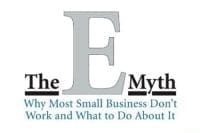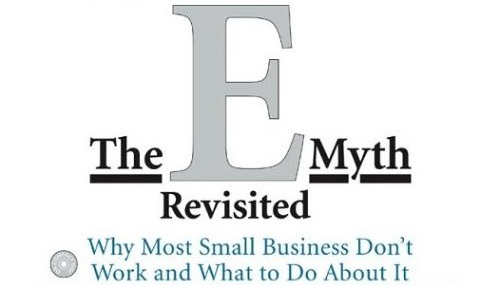
Technology’s Lure vs. Michael Gerber’s ‘The E(ntrepreneur)-Myth’

Michael Gerber’s then-groundbreaking work, The E-Myth: Why Most Businesses Don’t Work and What to Do About It, put forth the belief that most businesses are started by ambitious entrepreneurs who are technicians who know and enjoy the hands-on work of their organization. However, he said that having tangible business skills is far more important than being able to personally do the technical work required for a business
In the nearly 30 years since the book’s publication, a lot of evidence backs that belief. At some point, an innovator’s great idea grows into a huge business that requires a new level of managerial skills. More than a few business coaches have counseled their clients to either broaden their management team or sell their company and move on to their next big thing. Otherwise, they say, entrepreneurs may never reap their biggest financial rewards.
Getting to that level of success requires a dedicated, hard-working entrepreneur who relishes the hands-on work of making a vision a reality. Today’s technology tools, which enable a vast number of marketing strategies, allow an entrepreneur to go deeper into the business-building process to gain greater value.
But the conflict for the entrepreneur still remains: Does technology replace my need for an employee or outsourcing? From a productivity perspective, technology is wonderful. From a business perspective, it can be dangerous. Gartner and others continue to report on the number of technology projects that fail to deliver their purported ROI; the inability of entrepreneurs to focus on managing instead of doing can play a major role in that failure.
Entrepreneurs and small/midsize business owners could be lured by a post from Susan Gunelius. A marketing columnist for Forbes.com and Entrepreneur.com, she finds three ways in which the Internet and social media have made more information and do-it-yourself business tools available, potentially making the E-Myth obsolete:
- More Resources for Education
- More Tools for Implementation
- More Communities for Networking
But when you look at Gerber’s thesis – that business leaders need to “focus more on their business, not in their business” – then you realize that the tools and technology can be dangerous.
While Gunelius discusses each point individually, we can see, today, how they integrate. In some ways, they all give some credence to Gerber’s ideas – but in a totally different context.
For example, she singles out Google as an information goldmine. An entrepreneur can get information on any aspect of running a business simply by “Googling” a topic or idea. Indeed, we all do it for business and personal information, but we can take that a step farther. We all rely on Google searches to draw customers and clients to our own businesses, and we like to do a lot of that on our own. Technology allows to do it, but when are you sacrificing ‘working on your business?”
The Internet is home to a seemingly infinite catalog of tools that help us do things from financial and customer relationship management to marketing. The tools are free or available at a nominal cost, and entrepreneurs can run with them on a seemingly short learning curve. Again, are you sacrificing “working on your business?”
Finally, there are the community-building and networking tools that social media afford. Businesses of all sizes use them in many, many ways. On the business management side, for example, LinkedIn groups help entrepreneurs exchange information, and professional services companies use them to build credibility among clients and prospects or to find business relationships. Companies use Facebook to build and expand communities of customers and clients to strengthen relationships that lead to business growth.
All of these advances in technology still raise the central questions Gerber brought to light:
- How much is your time worth?
- Are you better of generating sales and managing production and delivery, or learning how to make a website or writing posts on LinkedIn or Facebook?
None of today’s technology was available when Gerber wrote his book in 1985. And, some of the ways in which Internet tools have evolved were mere concepts just a couple of years ago. The continuing evolution arguably proves both Gerber and Genelius correct.
While Internet tools enable businesses and their customers to do more, there is a point of diminishing returns. At some point, entrepreneurs need guidance to learn how to use those tools effectively for their specific needs, or they need to outsource programs to get a better ROI on activities such as marketing campaigns.
NicheLabs has the expertise and resources to help businesses design and/or launch marketing campaigns that take advantage of all that the Internet offers. We are a full-service agency for businesses that don’t have a CMO or VP of Marketing or that don’t have the people or time to develop websites and digital/ direct marketing campaigns. We can help you develop an integrated marketing communications program that includes social media, website content and email marketing for a total marketing communications and digital solution. And we’ll help you make decisions you can grow with.
For more tips and insights about digital marketing advancements, connect with us on Facebook, LinkedIn or Twitter or subscribe to our monthly newsletter to read summaries of our weekly posts.
To speak with our team, please Email us at sales@nichelabs.com, call 888.978.9254, or if you are mobile, visit us on your smartphone. We bust myths when it comes to marketing your business, and that’s something you can take to the bank.
